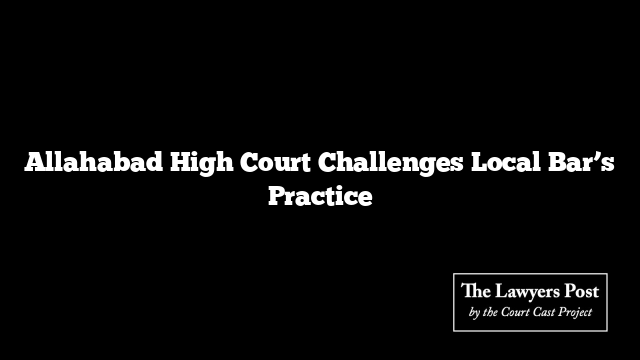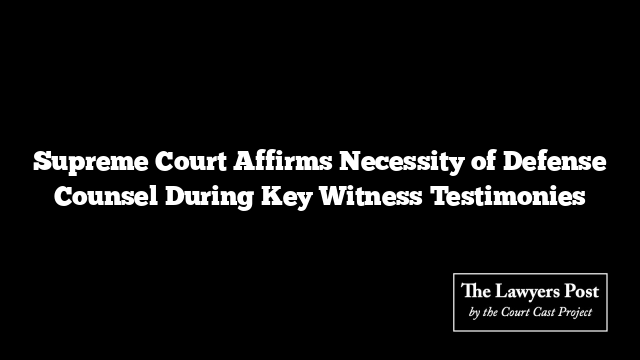In a recent and stirring development, the Allahabad High Court has cast a critical eye on the practices within legal advocacy circles, particularly spotlighting the Bahraich District Bar Association’s contentious resolution. This resolution effectively barred its members from representing individuals in cases pitting them against fellow advocates. The Court’s disapproval, voiced by Justice Subhash Vidyarthi, underscores a pivotal moment in the ongoing discourse on the ethics and responsibilities of legal practitioners.
The Core of the Controversy
The Bahraich District Bar Association had enacted a resolution that prohibited its members from taking up cases against other lawyers, a move that has now come under significant judicial scrutiny. The matter came to light within the context of a criminal proceeding, wherein certain individuals sought to quash a non-bailable warrant and the associated charges filed by an advocate.
Incident Details:
| Aspect | Description |
|---|---|
| Complaint | A dispute over land led to accusations against the individuals by the complainant, an advocate, involving trespass and assault. |
| Bar Association’s Action | Following a request from the complainant, the association sought to prevent any of its members from representing the accused. |
| Judicial Intervention | The Allahabad High Court, upon hearing the matter, questioned the legality and ethical foundation of the Bar Association’s resolution. |
Judicial Observations and Directions
Justice Vidyarthi’s remarks not only questioned the resolution’s alignment with the noble expectations from advocates but also highlighted its potential contravention of the Bar Council of India Rules. The court’s intervention has thus spotlighted a crucial ethical dilemma: the balance between professional solidarity and the overarching duty to ensure justice and legal representation.
Key Points Raised by the Court:
- Ethical Conduct: The expectation that advocates conduct themselves nobly, upholding justice over professional loyalties.
- Legal Obstacles: The resolution’s effect of creating undue barriers to legal recourse, thereby impeding the right to fair representation.
- Call for Explanation: The Court has sought responses from both the complainant and the leadership of the Bahraich District Bar Association, signaling a thorough inquiry into the matter.
Broader Implications
This case, set against the backdrop of the legal profession’s ethical standards, poses significant questions about the responsibilities of bar associations and their members. The Allahabad High Court’s stance reiterates the paramount importance of ensuring access to justice and legal representation, principles that form the bedrock of the legal system.
Anticipated Developments:
With the matter scheduled for further hearing in early May 2024, the legal community and observers await potential guidelines that could redefine the boundaries of professional conduct within the legal profession. This case could serve as a landmark in emphasizing the supremacy of legal ethics and the duty of lawyers to uphold the principles of justice, beyond personal or professional affiliations.
The unfolding of this controversy promises to be a significant chapter in the annals of legal ethics in India, potentially setting a precedent for the conduct and operational principles of bar associations nationwide.





